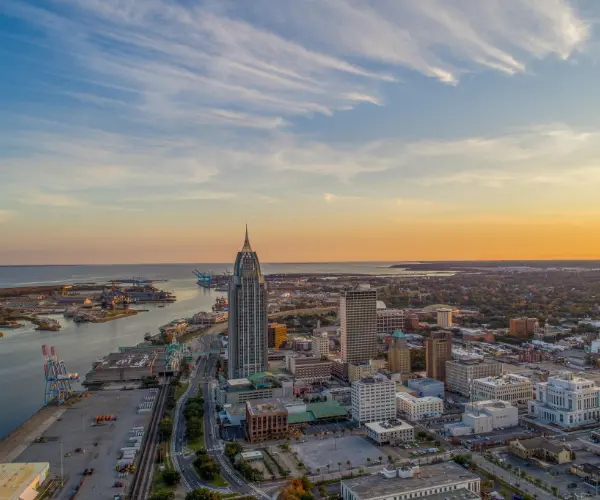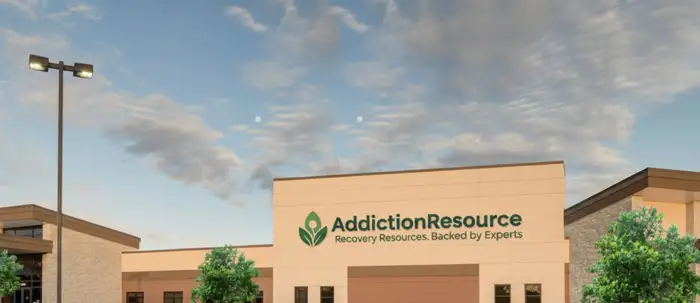Alabama is a state known for its rich cultural heritage and vibrant landscapes and has both bustling cities and expansive rural areas. While its economy thrives on industries like manufacturing, agriculture, and healthcare, Alabama also faces unique challenges in addressing the health needs of its population.
The state’s blend of urban and rural communities creates disparities in healthcare access, particularly when it comes to addiction treatment. Substance abuse has become a significant concern in Alabama, with opioids, alcohol, and methamphetamines leading the charge.
Rural areas of the state are particularly hard hit, with limited access to addiction treatment facilities, making it difficult for individuals to seek the help they need. The strain on Alabama’s healthcare system is evident as the demand for comprehensive addiction treatment continues to rise.
This article will delve into the challenges Alabama faces with substance abuse, explore the various treatment options available, and highlight the costs and insurance options for those seeking recovery.
Table Of Contents:
Substance Abuse in Alabama
Substance abuse in Alabama has reached critical levels, with the opioid epidemic being one of the most severe issues. In 2021, Alabama recorded 1,408 overdose deaths, which was equal to 30.1 overdose deaths per 100,000 people. This is significantly higher than the national average for overdose deaths, which stood at 28.3 per 100,000 people in the same year.
Alabama’s overdose rate places it among the states most affected by the opioid crisis, mainly driven by the over-prescription of painkillers like oxycodone and hydrocodone. Nationwide, the opioid epidemic claimed over 80,000 lives in 2021, but Alabama’s consistently high rate of opioid prescribing has amplified the crisis within the state.
When talking about alcohol, nationally, about 16% of adults engage in binge drinking, whereas Alabama’s rate is slightly higher, with approximately 17% of adults reporting excessive drinking. While alcohol abuse is a nationwide issue, the strain it places on Alabama’s healthcare system, particularly in rural areas with limited resources, is considerable. The state’s rehab centers are inundated with cases of alcohol dependency, complicating recovery efforts for those also battling drug addictions.
Methamphetamine abuse is another major concern in Alabama. Nationally, methamphetamine use is a growing problem, but in Alabama, it has become particularly severe, especially in rural communities. Approximately 25% of individuals seeking treatment for substance abuse in Alabama report meth as their primary drug of choice, compared to 15% nationwide.
When it comes to other drugs like marijuana, cocaine, and synthetic cannabinoids, Alabama sees usage rates that align closely with national trends. About 6% of young adults in Alabama report using illicit drugs other than marijuana, which mirrors the national average.
The combination of multiple drug crises has strained Alabama’s healthcare infrastructure more than in many other parts of the country, underscoring the need for comprehensive, multifaceted treatment programs.
Treatment Options in Alabama
To meet the needs of its residents, Alabama offers a wide variety of rehab services, including both inpatient and outpatient care. The state has 171 active substance abuse centers, which collectively serve over 14,500 patients annually. These centers provide essential services such as medical detox, therapy, and medication-assisted treatment (MAT).
Inpatient Rehab in Alabama
Inpatient rehab is an intensive form of treatment that provides individuals with a structured and immersive environment.
In Alabama, inpatient centers offer 24/7 medical supervision, therapy sessions, and support for co-occurring mental health conditions. The duration of inpatient programs generally ranges from 30 to 90 days, depending on the severity of the addiction.
Alabama has a wide network of 124 inpatient facilities, ensuring that those who need more intensive care have access to quality treatment.
Outpatient Rehab in Alabama
Outpatient rehab allows individuals to continue their daily responsibilities while receiving treatment. This option is ideal for those with less severe addictions or for those transitioning from inpatient care.
Alabama offers 128 outpatient rehab centers, making treatment accessible to a broader population across both rural and urban areas.
Outpatient programs typically include regular therapy sessions, MAT, and support groups to help individuals stay on the path to recovery.
Alcohol Treatment in Alabama
Alcohol addiction is a pervasive issue in Alabama, with nearly all of the state’s 171 rehab centers offering specialized treatment for alcohol use disorder (AUD). These facilities provide a range of services, including alcohol detoxification, individual and group therapy, and long-term recovery strategies.
Dual Diagnosis Treatment in Alabama
Dual diagnosis treatment, which addresses both substance use disorders and co-occurring mental health conditions, is available at over 40 facilities in Alabama.
These programs are available in both inpatient and outpatient settings, allowing individuals to receive tailored care that addresses their specific mental health and substance use challenges.
| Category | Number of Facilities |
|---|---|
| Total Rehab Facilities | 171 |
| Inpatient Rehab Facilities | 124 |
| Outpatient Rehab Facilities | 128 |
| Facilities Offering Both Inpatient and Outpatient | Many offer both; around 100+ offer dual options |
| Facilities Offering Dual Diagnosis | 40+ |
| Facilities Offering Alcohol Treatment | Almost all (majority) |
Cost of Rehab in Alabama
The cost of rehab in Alabama varies depending on the type and length of treatment. For outpatient services, the average cost per day is approximately $56, while inpatient care can cost as much as $58,607 for a 30-day program.
| Type of Treatment | Cost Range (30-day program) |
|---|---|
| Inpatient Rehab | $58,607 |
| Outpatient Rehab | $56 per day |
| Detox (3-7 days) | $1,500 – $5,000 |
| Medication-Assisted Treatment (MAT) | $500 – $1,500 per month |
Rehab in Alabama Insurance Coverage
Many rehab centers in Alabama accept a range of insurance options, including Medicaid and Medicare, which help cover costs for those in need. Additionally, Alabama has 44 state-funded rehab centers that offer treatment services for individuals without insurance, making recovery more accessible to low-income residents.
| Insurance Type | Details |
|---|---|
| Medicaid | Provides coverage for substance use disorder treatment, including inpatient, outpatient, and MAT services. Eligibility is based on income. |
| Medicare | Covers rehab services for individuals 65 and older or those with specific disabilities. Includes outpatient, inpatient, and MAT coverage. |
| BlueCross BlueShield | One of the largest private insurers in Alabama, covering a range of inpatient and outpatient addiction treatment services. |
| UnitedHealthcare | Provides coverage for both inpatient and outpatient rehab, as well as MAT for substance use disorders. |
| Aetna | Offers comprehensive rehab coverage, including detox, inpatient, outpatient, and dual diagnosis services. |
| Cigna | Covers various levels of care, including detox, inpatient, and outpatient services for addiction recovery. |
| Humana | Provides addiction treatment coverage for both inpatient and outpatient services. Includes MAT and dual diagnosis care. |
| Tricare | Covers rehab services for active-duty military veterans and their families, including inpatient, outpatient, and mental health services. |
| State-Funded Programs | Alabama has 44 state-funded rehab centers that provide low or no-cost treatment for those without insurance or limited income. These centers operate on a sliding scale based on financial need. |
Best Rehab in Alabama
Here is a list of the best rehab centers in Alabama:
| Rehab Center | Location | Treatment Type | Insurance Accepted |
|---|---|---|---|
| Bradford Health Services (A Reprieve for Women) | Tuscaloosa, AL | Residential, 12-Step, Dual Diagnosis | Most major insurances |
| Bradford Health Services (Huntsville) | Huntsville, AL | Inpatient, Outpatient, Detox, MAT | Most major insurances |
| Bradford Health Services (Warrior Lodge) | Warrior, AL | Inpatient, Outpatient, Detox, Residential | Most major insurances |
| Royal Pines Center | Hayden, AL | Residential, Faith-Based, Men’s Rehab | No-cost or sliding-scale fees |
| Elk River Treatment | Huntsville, AL | Teen Residential Treatment | Most major insurances |
| AltaPointe Health Systems | Mobile, AL | Residential, Outpatient, MAT | Most major insurance, Medicaid |
| MedMark Treatment Centers | Oxford, AL | MAT, Outpatient | Medicaid, Tricare, Private Insurance |
| Chilton County Treatment Center | Clanton, AL | MAT, Outpatient, Opioid-Specific | Most major insurances |
| A Center for Eating Disorders | Birmingham, AL | Residential, PHP, IOP, Dual Diagnosis | Most major insurances |
| BHG Treatment Centers (Stevenson) | Stevenson, AL | Outpatient, MAT | Most major insurance, Medicaid |
| Impact Recovery Center | Odenville, AL | 12-Step Residential Program | Private pay, Some insurance options |
| Birmingham Recovery Center | Birmingham, AL | Inpatient, Outpatient, PHP, IOP | Private insurance |
| Phoenix House | Tuscaloosa, AL | Residential, Sober Living | Private insurance |
| Aletheia House | Birmingham, AL | Residential, Outpatient, Dual Diagnosis | Medicaid, Private Insurance |
| Rapha Treatment Center | Attalla, AL | Faith-Based Residential, Men’s Rehab | Private insurance, Self-pay |
A Path to Recovery in Alabama
For anyone battling addiction, rehab in Alabama offers a wide range of services tailored to support recovery.
From inpatient and outpatient programs to dual diagnosis treatment, the state’s rehab centers are equipped to address the complex challenges of addiction.
Whether through state-funded programs or private facilities, individuals in Alabama have access to the resources they need to regain control of their lives and work toward lasting sobriety.
Frequently Asked Questions
Are rehab centers in Alabama equipped to treat teens and adolescents?
Yes, Alabama has specific rehab programs for teens and adolescents. These centers focus on treating young individuals aged 12 to 17 who are struggling with substance use disorders.
These programs often integrate educational services, therapy, and skill-building activities to address both the addiction and the developmental needs of young patients.
What are the most common substances treated in Alabama rehab centers?
The most common substances treated in Alabama rehab centers include opioids, alcohol, methamphetamine, and cocaine.
Hope Without Commitment
Find the best treatment options. Call our free and confidential helpline
Most private insurances accepted
Local Rehabs in Alabama
Page Sources
- NIDA: Drug Overdose Death Rates
- Alcohol Abuse Statistics [2023]: National + State Data - NCDAS. (2024, May 2). NCDAS. https://drugabusestatistics.org/alcohol-abuse-statistics/
- National Survey of Substance Abuse Treatment Services. (2021, July 14). https://www.samhsa.gov/data/data-we-collect/n-ssats-national-survey-substance-abuse-treatment-services
- National Library of Medicine: Services Available at United States Addiction Treatment Facilities That Offer Medications versus Behavioral Treatment Only: A Cross-Sectional, Observational Analysis
- NCDAS: Average Cost of Drug Rehab










 FindTreatment.gov
FindTreatment.gov